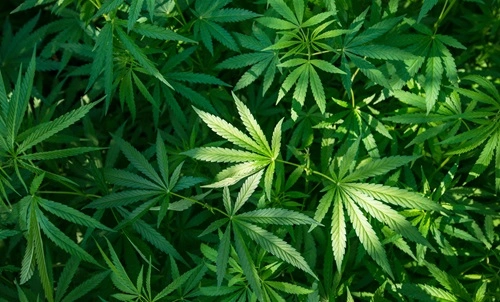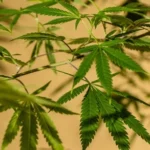No, marijuana is not entirely legal in India. However, its legality depends on the specific part of the cannabis plant being used and the context of its use. The Narcotic Drugs and Psychotropic Substances (NDPS) Act, 1985, prohibits the production, sale, and use of cannabis resin (charas) and flowers (ganja) but allows the use of cannabis leaves and seeds for certain purposes under state regulations.
Legal Framework Governing Marijuana in India

Marijuana is regulated under the NDPS Act, 1985, which defines and classifies cannabis and its derivatives.
1. Definitions Under the NDPS Act
- Ganja:
- Refers to the flowering or fruiting tops of the cannabis plant, excluding seeds and leaves.
- Status: Illegal for cultivation, sale, and consumption.
- Charas:
- The resin extracted from the cannabis plant, commonly known as hashish.
- Status: Illegal for production, sale, and use.
- Bhang:
- Made from the leaves and seeds of the cannabis plant.
- Status: Legal under state regulations, often consumed during festivals like Holi.
- Cannabis Plant:
- The plant as a whole is prohibited from being cultivated unless specifically licensed for industrial or medicinal purposes.
2. Permitted Uses of Cannabis
- Medicinal and Industrial Use:
- Cannabis cultivation is allowed under strict government licenses for medicinal and industrial purposes.
- Several research institutions and pharmaceutical companies are working on cannabis-based medicines.
- Cultural and Religious Use:
- Bhang, derived from the leaves, is legally consumed in many states for its cultural and religious significance.
3. Penalties Under the NDPS Act
The NDPS Act imposes severe penalties for the illegal production, possession, or sale of cannabis:
- Small Quantities:
- Possession of a small quantity (e.g., 1 kg of ganja or 100 grams of charas): Up to 1 year of imprisonment or a fine up to ₹10,000, or both.
- Commercial Quantities:
- Possession of commercial quantities (e.g., 20 kg of ganja or 1 kg of charas): Up to 20 years of rigorous imprisonment and a fine up to ₹2 lakh.
- Intermediate Quantities:
- Punishments between these two extremes depend on the amount seized.
Exceptions and State Regulations
- State-Specific Laws:
- States like Uttar Pradesh, Rajasthan, Madhya Pradesh, and Uttarakhand regulate and permit the sale of bhang through licensed shops.
- Industrial Hemp Cultivation:
- States such as Uttarakhand and Himachal Pradesh have allowed the cultivation of industrial hemp under controlled conditions.
Challenges and Concerns
- Illegal Trade and Abuse:
- Despite the ban, illegal cultivation and trade of cannabis persist, leading to law enforcement challenges.
- Health Concerns:
- The misuse of cannabis can lead to addiction and adverse health effects, contributing to the stigma surrounding its use.
- Ambiguity in Laws:
- The distinction between the legal use of bhang and the illegal use of other cannabis derivatives creates confusion.
Recent Developments
- Medicinal Cannabis Research:
- India is witnessing growing interest in the medicinal properties of cannabis, with several companies developing cannabis-based treatments for pain, epilepsy, and other conditions.
- Decriminalization Debates:
- Activists and organizations are advocating for the decriminalization of cannabis, citing its medicinal benefits and economic potential.
- Hemp Industry Growth:
- States like Uttarakhand are exploring the economic potential of hemp cultivation for textiles, paper, and biodegradable plastics.
Global Perspective
- Legalization Trends:
- Countries like Canada, Uruguay, and several states in the US have legalized cannabis for recreational and medicinal use.
- Impact on India:
- The global shift towards legalization has sparked debates in India about the potential benefits of regulating cannabis, including increased tax revenue and reduced law enforcement costs.
Conclusion
While marijuana is largely illegal in India, certain parts of the cannabis plant, such as leaves and seeds (bhang), are legal under specific regulations. The NDPS Act, 1985, strictly governs the cultivation, sale, and use of cannabis products. As global perspectives on cannabis evolve, India is slowly opening up to its medicinal and industrial potential, though recreational use remains prohibited. Individuals should stay informed about state-specific laws and comply with the legal framework to avoid severe penalties.
Hina Abbasi is Editor and a passionate sports and entertainment content writer at WinnersMaze.com. Hina’s expertise spans across a wide range of sports, and interest in many TV shows allowing her to deliver insightful analysis and compelling stories that resonate with readers.

